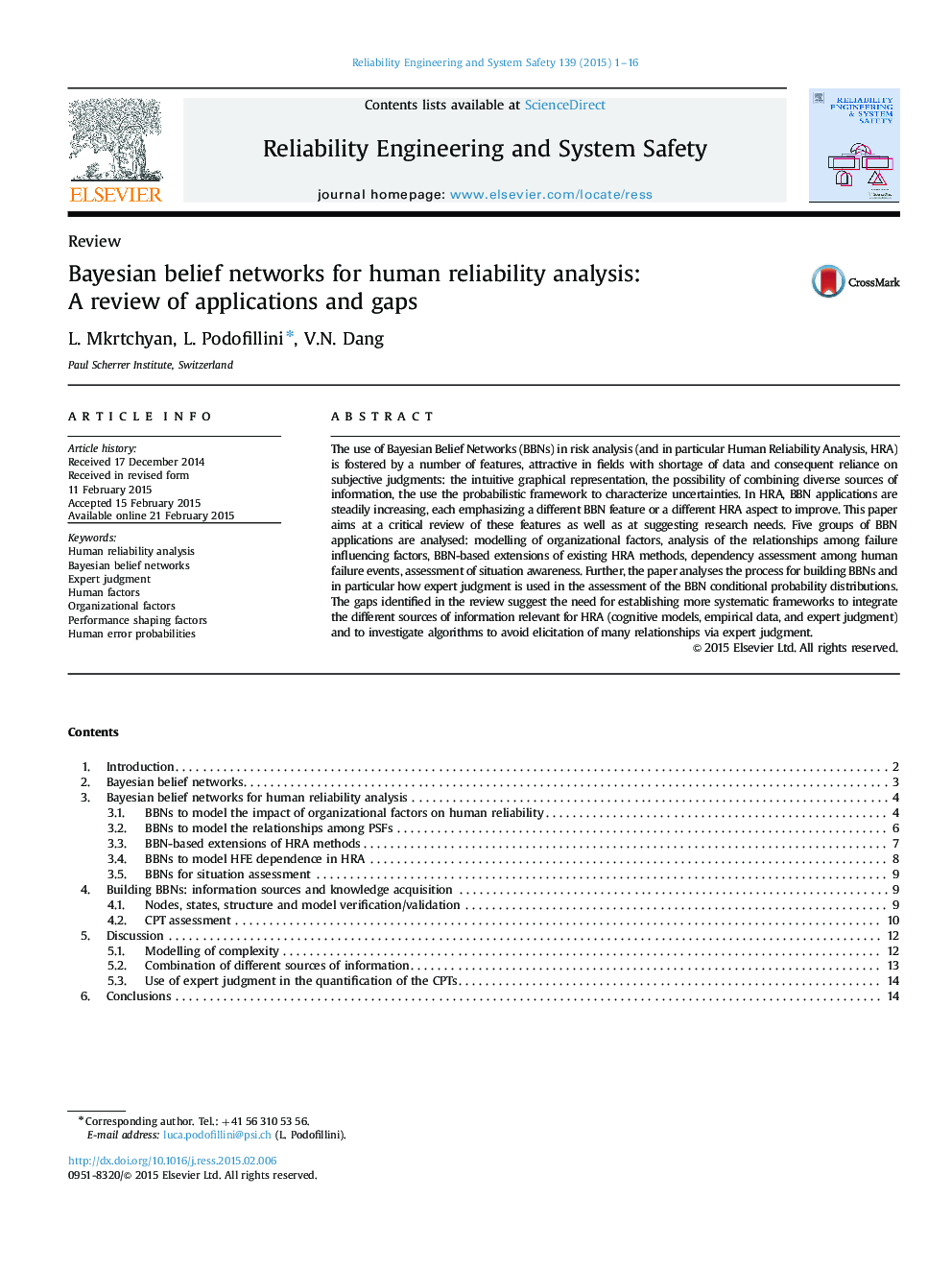| کد مقاله | کد نشریه | سال انتشار | مقاله انگلیسی | نسخه تمام متن |
|---|---|---|---|---|
| 805485 | 1468231 | 2015 | 16 صفحه PDF | دانلود رایگان |
• We analyze BBN uses for HRA applications; but some conclusions can be generalized.
• Special review focus on BBN building approaches, key for model acceptance.
• Gaps relate to the transparency of the BBN building and quantification phases.
• Need for more systematic framework to integrate different sources of information.
• Need of ways to avoid elicitation of many relationships via expert judgment.
The use of Bayesian Belief Networks (BBNs) in risk analysis (and in particular Human Reliability Analysis, HRA) is fostered by a number of features, attractive in fields with shortage of data and consequent reliance on subjective judgments: the intuitive graphical representation, the possibility of combining diverse sources of information, the use the probabilistic framework to characterize uncertainties. In HRA, BBN applications are steadily increasing, each emphasizing a different BBN feature or a different HRA aspect to improve. This paper aims at a critical review of these features as well as at suggesting research needs. Five groups of BBN applications are analysed: modelling of organizational factors, analysis of the relationships among failure influencing factors, BBN-based extensions of existing HRA methods, dependency assessment among human failure events, assessment of situation awareness. Further, the paper analyses the process for building BBNs and in particular how expert judgment is used in the assessment of the BBN conditional probability distributions. The gaps identified in the review suggest the need for establishing more systematic frameworks to integrate the different sources of information relevant for HRA (cognitive models, empirical data, and expert judgment) and to investigate algorithms to avoid elicitation of many relationships via expert judgment.
Journal: Reliability Engineering & System Safety - Volume 139, July 2015, Pages 1–16
